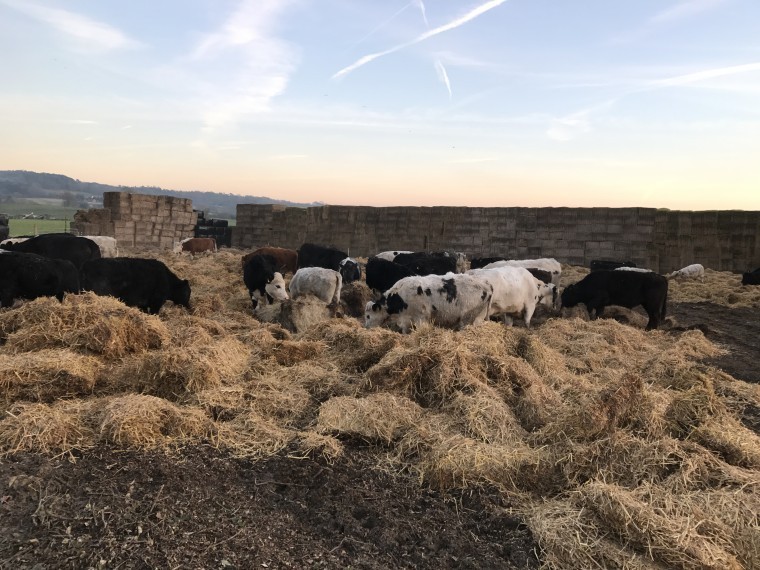One hundred and twenty years ago, Dan Willis’ great great grandfather and grandmother were in the grounds of Highclere Castle in Berkshire as tenants of the Carnarvon estate.
They had a smallholding of about eight acres with a few livestock and produced a bit of hay. Eventually, Dan’s great grandfather took over, started farming more land and went to Maple Farm, still as a tenant of the Carnarvon estate.
The great grandfather died in his fifties, knowing the tenancy would come to an end and leaving Dan’s grandfather in charge just after the second world war. He was farming 160 acres as a tenant and pushed very hard to buy land. Initially, he bought 40 acres and then bought more.
By a process of buying and selling farms, at one stage in the sixties the family farmed in Wiltshire, Hampshire, Berkshire and Oxfordshire. These were only small farms of about 120 acres, but by then mechanisation had completely taken over from the horse and cart days. “It was a chance to buy land from farmers who didn’t want to embrace mechanisation,” Dan said. “Times had moved on and so my grandfather was dealing with run down farms which he made profitable through mechanisation.”
The family had always traded hay and straw, and that has continued up to today. The generation of Dan’s mother, Hazel, all came into the business in the late sixties and seventies. In the eighties, the partnership ran a haulage business as well as grain drying and storage for some of the big merchants, shipping companies and other customers.
“That expanded up to about 40,000 tonnes of storage,” Dan remembered. “We had nine months of the year dealing with grain while the farming and haulage were still going.” Compulsory set aside and the attitude of multinational companies towards paying for storage changed that side of the business dramatically. “We had this huge storage building and it was very labour intensive getting the grain in to go with everyone else’s,” said Hazel. “In the end, the partnership decided to go for planning permission to change the building for commercial lets, which is how it is still used today.” Along with the changes in the grain building came other significant changes in infrastructure as Dan began to make his mark in the partnership. “I pushed hard for that,” Dan said. “Many of the buildings had been here since the forties, fifties and sixties, so we invested heavily in replacements as well as proper electricity and water supplies. This has been a massive investment to make a larger site with everything you need to make it work.” Commercial lets on farms were still in their infancy then, but the money raised was needed for the farming and the very large family.
Eventually, everything was consolidated at Rookery Farms by the late nineties. Rookery Farms was then about 190 acres after an opportunity arose to buy some land from the next door farm, which Dan’s grandfather took. “In 1999, we finished the whole process of buying the next door farm, which happened in three stages.” This took Rookery Farms to 500 acres.
By this stage, Dan had been to college, travelled and worked for other people as well as coming to and from the farm. “I just wanted to get back working on the farm,” Dan said. His father married into the farming family, and so it was Dan’s mother’s relatives who ran the partnership. His father did – and still does – odd jobs, but in many ways, Dan said his grandfather became his adoptive father.
By the time Dan came home to the farm, Hazel was the boss, and is still today, aged 73. Then, more of the family was involved in the partnership and it was quite hard for Dan, as a youngster, to make an impression. Today, the partnership is just Hazel as chairman and Dan as managing director. His partner Sandy Gilbert does much of the administration, and Sam King is the farm foreman.
“I was the eldest in the family and below me were all boys,” Hazel said. “I did work outside the farm at different times. But I had always done the accounts since I was about 12 and before that my grandmother did it. My mother did a little bit of taking orders using the telephone if there was hay and straw and other produce to be sold, but she never did the accounts. So I took over that side after my grandmother retired.”
Hazel has lived through years of constant change and innovation by the partnership. Her father had traded hay and straw across the South West and into Wales but as he grew older, the hay trade began a big dive. That was the impetus to start supplying horse feed – but soon the demands of the partnership changed again, and everything moved on.




